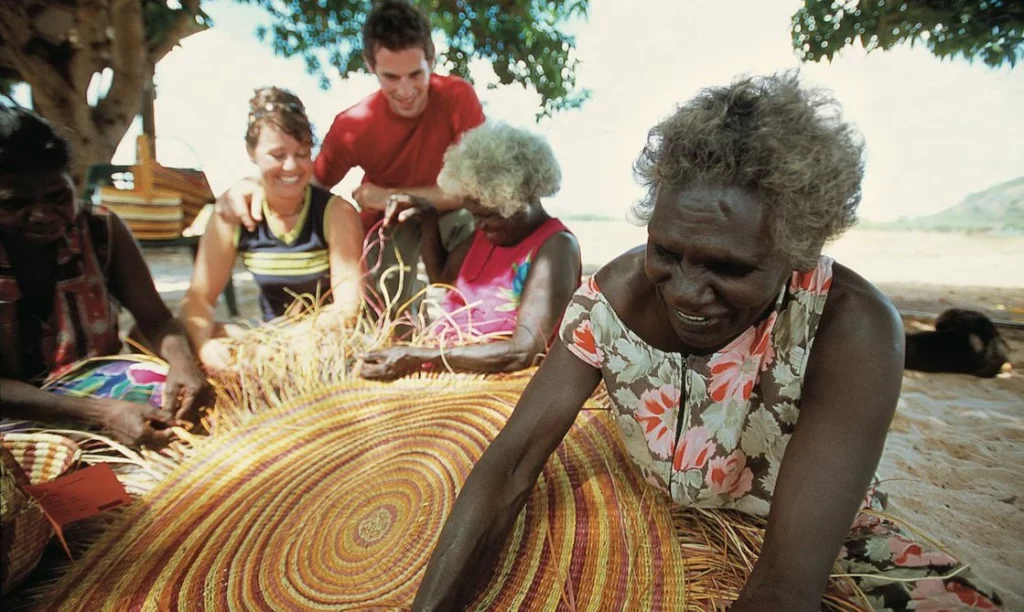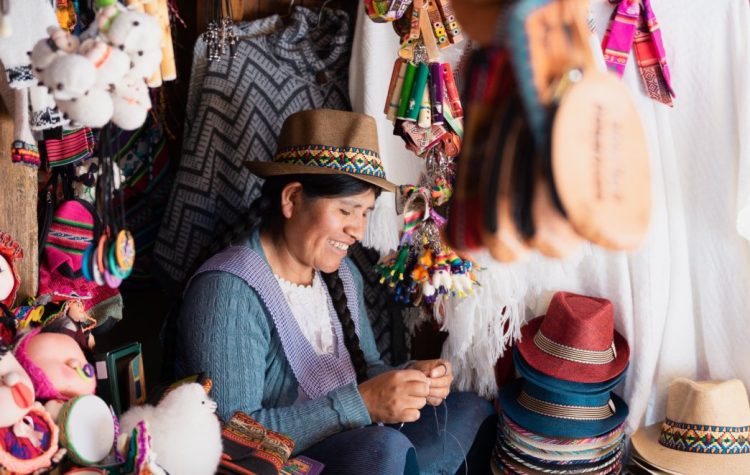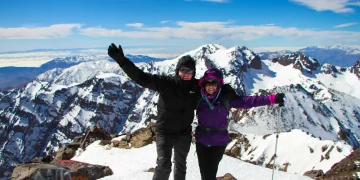Personal Stories of Cultural Immersion from Seasoned Travelers
Traveling is a transformative experience. It has the potential to expand your world view, challenge your assumptions, and introduce you to ways of life different from your own. However, the most enriching journeys are those that go beyond just sightseeing and tick-box itineraries. Instead, these journeys are about deepening your understanding of the places you visit, forging meaningful connections with local people, and embracing the customs and traditions of different cultures. This type of travel is often referred to as cultural immersion, and it is a powerful tool for personal growth.
In the words of seasoned travelers, cultural immersion is about much more than visiting a foreign place—it’s about becoming part of it, if only for a short time. When you take the time to immerse yourself in the local culture, you will not only gain a deeper understanding of the people and their way of life but also have more memorable experiences that stay with you long after your trip ends.
Take Lina, an avid solo traveler, who spent several months living with a host family in a remote village in Peru. She recalls how, at first, the language barrier and unfamiliar customs made her feel out of place. But over time, as she learned to cook traditional Peruvian dishes, participated in community festivals, and took part in daily rituals like sharing a cup of mate with her host family, she felt a sense of belonging. “The most rewarding part of my travels wasn’t seeing the famous landmarks; it was forming real, human connections and becoming part of the rhythm of life in that village,” she said.
Similarly, John, a frequent traveler to Southeast Asia, shares how his time in Thailand allowed him to connect with locals on a deeper level. By learning some Thai phrases, participating in local ceremonies, and attending traditional family gatherings, John discovered that the warmth and generosity of the Thai people are much more impactful than just visiting temples and beaches. He notes that while the touristy aspects of Thailand are beautiful, it’s the cultural immersion that created the most lasting memories.
These personal stories highlight a fundamental truth: cultural immersion is the best way to experience the soul of a place. It fosters personal connections, opens your mind to new ways of thinking, and challenges you to see the world through a different lens.

The Importance of Understanding Cultural Etiquette
Cultural immersion is not just about visiting new places and interacting with locals—it’s about respecting the culture and understanding the customs that shape everyday life. Cultural etiquette plays a huge role in ensuring that your interactions with locals are respectful and meaningful.
While cultural differences may seem overwhelming at first, understanding the basic etiquettes of a country can significantly enhance your experience. This could include something as simple as how to greet people, what gestures or body language are appropriate, or how to dress appropriately for different settings.
For example, in many parts of Japan, bowing is an essential part of greetings and everyday interactions. Understanding this simple custom can help you avoid offending others and show that you respect their culture. Similarly, in the Middle East, showing respect for elders is a deeply ingrained part of social etiquette, and addressing people with the appropriate titles or formalities can go a long way in building rapport and mutual respect.
In some countries, such as Thailand and India, it’s important to remove your shoes when entering someone’s home, a sacred space that represents both cleanliness and respect. In other cultures, such as in many parts of Europe, dining etiquette may include things like waiting for the host to begin the meal before eating or using specific utensils for certain foods.
As Sophie, a seasoned traveler who spent a year living in Italy, shares: “When I first arrived in Italy, I made a few social blunders, like sitting down before my host or asking about someone’s family at the dinner table. But once I started to understand the local customs, I felt like I was accepted into the community. It’s about understanding that what might be considered ‘normal’ for you may not be the same for others, and adjusting accordingly.”
Learning about cultural etiquette before you travel can help you avoid misunderstandings, and can lead to richer and more positive exchanges with the people you meet. Doing research or speaking with locals about their cultural practices can also make you more aware of local sensitivities, allowing you to participate in daily activities with greater confidence and understanding.
Tips for Making Meaningful Connections with Locals
At the heart of cultural immersion is building genuine connections with locals. It’s one thing to observe a culture from a distance, but it’s another to become an active participant in it. Connecting with locals allows you to experience life in a more authentic and intimate way, which enriches your travel experience immeasurably.
- Learn the Language: One of the most significant ways to connect with locals is by learning some of their language. While English is spoken in many places around the world, speaking even a few words in the local language can go a long way in making people feel more comfortable with you. In some countries, like in rural parts of the world, speaking the local language might be necessary to get by. Simple phrases like “hello,” “thank you,” and “goodbye” can break the ice and show respect for the local culture.
- Stay with Locals: One of the most effective ways to engage with a community is by staying with locals. Platforms like Airbnb and Couchsurfing allow you to find hosts who are not only willing to provide a place to stay but are often happy to share local experiences, advice, and traditions. Staying with locals offers insights into daily life that you simply won’t get by staying in a hotel.
- Attend Local Events and Festivals: Participating in local events and festivals is a fantastic way to immerse yourself in a culture and meet people. Whether it’s a traditional dance performance in India, a food festival in Spain, or a religious ceremony in Bali, these events provide unique opportunities to learn about a place’s heritage and to connect with others.
- Volunteer or Work: If you’re planning to stay in a destination for an extended period, consider volunteering or doing work in exchange for accommodation. This can help you establish connections with local organizations and communities. Whether you’re helping with an environmental project in Costa Rica or assisting with a community development initiative in Nepal, volunteering enables you to give back while forming lasting bonds with people from the area.
- Be Open and Approachable: The most important tip is simply to be open-minded and approachable. Approach every interaction with an open heart and mind, and be ready to learn from those around you. Genuine curiosity, respect, and kindness are key to building lasting relationships and deepening your cultural understanding.
How Cultural Immersion Can Transform Your Travel Experience
Cultural immersion is far more than just a travel style—it’s a transformative experience that can reshape your worldview, boost your personal growth, and leave you with lasting memories. When you fully immerse yourself in the culture of a destination, you begin to see the world differently. You experience new ways of thinking, new ideas, and new ways of life that challenge your assumptions and broaden your perspective.
Through cultural immersion, you not only learn about the place you’re visiting but also about yourself. Traveling this way can help you become more empathetic, open-minded, and appreciative of diversity. It also teaches you patience and adaptability, as you navigate unfamiliar environments and customs.
For example, after spending time living with a family in Morocco, Aidan, a former tourist who now considers Morocco his second home, says, “The experience changed me completely. When you stay with people who are so different from you, you start to appreciate the nuances of life that you take for granted. It made me realize how much we’re all connected as humans, regardless of our cultural differences.”
Practical Advice for Adapting to New Cultural Environments
Adapting to a new cultural environment can be challenging, especially if you’re visiting a country with vastly different customs, social norms, or even weather conditions. Here are some practical tips for adjusting to a new place while ensuring that you respect the local culture:
- Stay Curious and Ask Questions: If you’re unsure about something, ask. People are often more than happy to share their knowledge, and it shows your genuine interest in learning.
- Take Small Steps: Don’t try to do everything at once. Start with small steps—learn a few key phrases, try some local foods, or participate in one cultural activity. Gradually, you’ll start to feel more comfortable.
- Embrace Discomfort: Cultural immersion often involves stepping out of your comfort zone. While it may feel awkward or challenging at first, don’t be afraid to embrace the discomfort. It’s part of the learning process.
- Be Respectful of Local Beliefs: Understand that local cultures may have different beliefs and customs, and always approach these with an open mind and respect.
Conclusion
Cultural immersion is one of the most enriching ways to experience travel. Through the stories of seasoned travelers and practical tips for connecting with locals, it becomes clear that immersing yourself in a destination’s culture is the key to unlocking its true beauty. From understanding cultural etiquette to making lasting connections with people, cultural immersion enriches your journey and allows you to experience a place in ways that go beyond the surface.





















